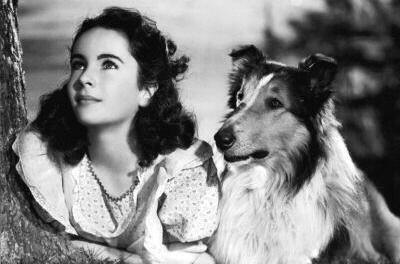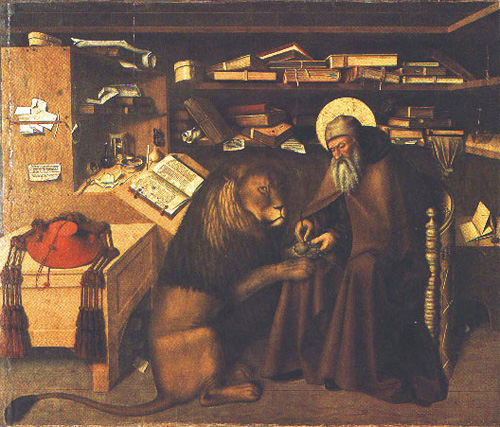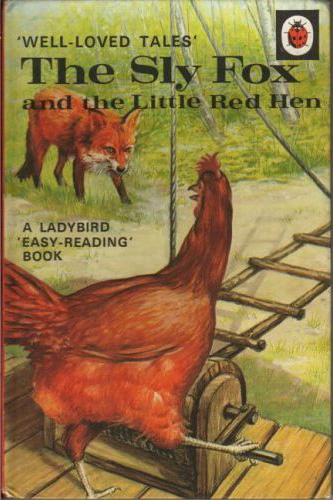You have no items in your cart. Want to get some nice things?
Go shoppingAs I write this, I am being watched. Not, I hasten to add, by a human being—at least, I hope not—but by my pet bearded dragon, Watson.
Owning a pet has always been important to me. In our family, we tend to treat our dogs as though they are oddly-shaped people who are regrettably unable to answer when we talk to them. We’re tactful about things like their inability to communicate in sentences and their fondness for landscaping the garden in new and creative ways, and in return they show us their appreciation by drooling on our feet.
Sadly, there’s not much room for a dog in a small central London flat so I got Watson. To be honest, she’s not an entirely satisfactory canine substitute—her emotional repertoire extends to haughty glaring and the occasional slow blink—but without a dog, or pseudo-dog, I just feel in some way incomplete.
Of course, you’re perfectly entitled to think that this is insane, although if you do, you’ve probably never owned an animal. There are some pretty influential arguments for my pro-pet point of view. Literature is littered with odes to the companion animal, and once you start looking around you realise that there’s almost as much written about human-animal partnerships as there are about purely human love affairs.

Take my favourite pet: the dog. There’s Argus, who waits twenty years for Odysseus to return; Buck, so loyal that he pulls a sled weighing half a ton in The Call of the Wild; Timmy, who solves most of the Famous Five’s mysteries single-pawed, and Lassie, who (famously) comes home. Besides that, almost every lone survivor of an apocalypse does so with a dog at their side; the dogs in The Incredible Journey cross a continent to find their masters; and in 19th-century Edinburgh, the Skye Terrier Greyfriars Bobby guards his owner’s grave for 14 years until he dies (true story). The list is endless.
These dogs are brave, loyal and loving, but it’s interesting that often, these qualities are meant to say more about their owners than it does about the animals themselves. Own a good dog, so the theory goes, and you must be a good person. A pet, after all, can be seen as an extension of its owner. Even more than the clothes you wear or the friends you choose, your animal says something about who you are and how you want to be seen.

It’s oddly fitting that the most bookish Christian saint has a particularly unusual companion. Jerome, the patron saint of scholars, libraries and students, is usually painted in his study, surrounded by manuscripts—and sitting next to him as he reads is his pet lion. It’s an odd partnership, but clearly a happy one, and it tells everyone who looks at the painting that Jerome isn’t just your typical scholar. He’s silent but strong, thoughtful but entirely capable of messing you up if you try to cross him. When the lion limped into Jerome’s monastery one day, he was the only one who stayed while the other monks fled. After Jerome withdrew a thorn from the lion’s paw, the lion became loyal to him, protecting him for the rest of his life. This is the reason, apparently, that statues of Jerome’s lions often appear in front of libraries.
Of course, the godly don’t have a monopoly on pet ownership as self-expression. As any good member of the Harry Potter generation knows, no witch or wizard is worth their salt without a familiar, an animal that does your magical bidding and which also looks great on the back of your broomstick. Naturally, you have to choose an appropriately evil species. Cats, rats, owls and bats are all associated with the dark, and so owning one, for a witch, performs the same function as wearing a leather jacket and riding a motorbike. It says: I’m bad. Watch out for me.
 The writer who has taken the concept of pets-as-expression-of-character further than anyone else in recent years is Philip Pullman. In the His Dark Materials trilogy, the soul is visible and it looks like an animal. Are you a prickly person? Then your daemon will look like a hedgehog. Sly? A fox. Chatty? You’re a parrot. Humans have always loved investing animal species with particular characteristics: cats are haughty, monkeys are naughty, lambs are innocent and wolves are wicked, and so on. It’s so tempting to buy into. It’s such a neat, easy way of thinking, and one that we’re all prone to; after all, who hasn’t looked at someone with a long jaw and compared them to a horse? So many of our expressions for behaviour, too, refer to a species of animal. A person can be catty, a cow, a dog, a goose, a pig…
The writer who has taken the concept of pets-as-expression-of-character further than anyone else in recent years is Philip Pullman. In the His Dark Materials trilogy, the soul is visible and it looks like an animal. Are you a prickly person? Then your daemon will look like a hedgehog. Sly? A fox. Chatty? You’re a parrot. Humans have always loved investing animal species with particular characteristics: cats are haughty, monkeys are naughty, lambs are innocent and wolves are wicked, and so on. It’s so tempting to buy into. It’s such a neat, easy way of thinking, and one that we’re all prone to; after all, who hasn’t looked at someone with a long jaw and compared them to a horse? So many of our expressions for behaviour, too, refer to a species of animal. A person can be catty, a cow, a dog, a goose, a pig…
All the same, like any other sort of categorising, it rarely gets very close to the truth. What does having Watson as a pet say about me? That I’m contemplative? That I’m spiky? That my inner little girl had a thwarted desire for a real dragon? I suppose so. Maybe you can deduce the traumatic dead hamster incident, when I was nine, that put me off owning small furry animals forever. Really, trying to read a person by their pet is about as effective as putting your faith in horoscopes.
Regardless, the key thing is: we want our pets to make us look good. In turn, they mean so much to us that we want them to also mean something to the rest of the world. The one thing that all these literary animals commonly prove is how important pets are to their human owners. No matter what form they come in, and irrespective of their actual merits, we’re obsessed with them. I don’t think Watson will ever cross a country or jump into a river to rescue me, but all the same, it’s just nice to know she’s there.

About Emily Cleaver
Emily Cleaver is Litro's Online Editor. She is passionate about short stories and writes, reads and reviews them. Her own stories have been published in the London Lies anthology from Arachne Press, Paraxis, .Cent, The Mechanics’ Institute Review, One Eye Grey, and Smoke magazines, performed to audiences at Liars League, Stand Up Tragedy, WritLOUD, Tales of the Decongested and Spark London and broadcasted on Resonance FM and Pagan Radio. As a former manager of one of London’s oldest second-hand bookshops, she also blogs about old and obscure books. You can read her tiny true dramas about working in a secondhand bookshop at smallplays.com and see more of her writing at emilycleaver.net.




